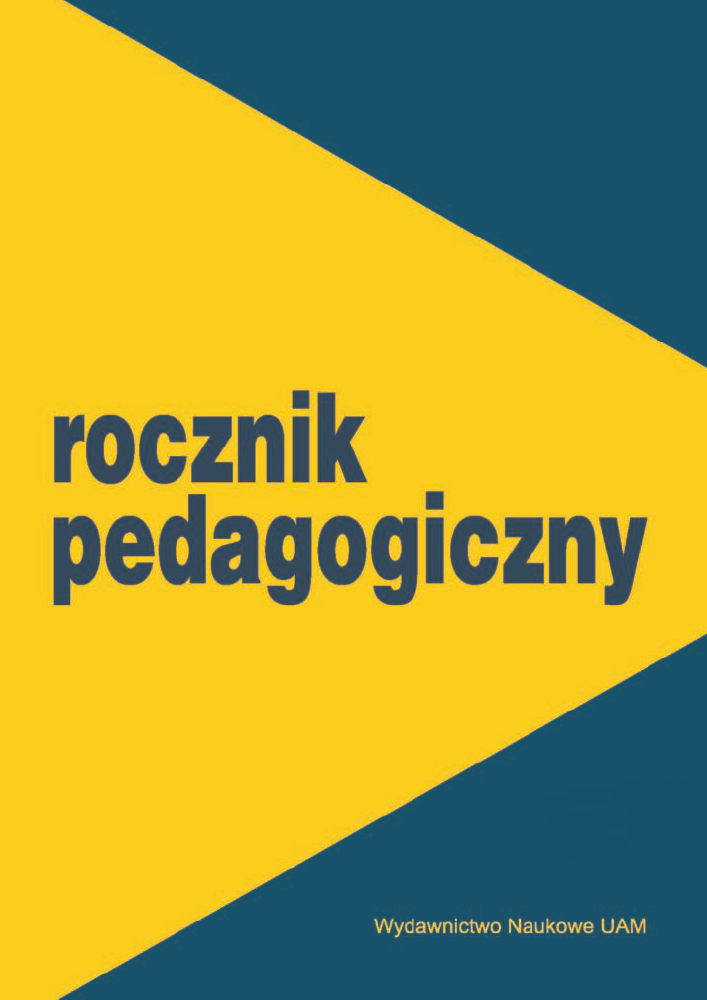Abstrakt
In the post-humanistic discourse, the concepts of humanity, subjectivity, civilization and knowledge change (expand) their meaning. The scale of development of digital technologies, algorithmization and automation of people’s lives also plays a significant role. Today we know that the Anthropocene epoch brought (and continues to bring) more harm than benefit in the relations between man and nature, man and man, subject and object. In addition, the pandemic crisis has sharpened the picture of problems and challenges that humanity should face. Following this, the concepts of traditional education are also being revised. The text attempts to identify educational concepts that in the near future may change the humanistic visions of education and upbringing. It is a reflection on the potential of the post-humanis- tic understanding of education in the era of civilization crisis and global threats.
Bibliografia
Attenborough D., A Life On Our Planet, 2020, https://www.filmweb.pl/film/David+Attenborough%3A+%C5%BBycie+na+naszej+planecie-2020-850417 [dostęp: 3.08.2022].
Bayne S., Posthumanism: A navigation aid for educators, „Journal for Research and Debate” 2018, Vol. 1, No. 2, s. 1–7, https://www.research.ed.ac.uk/en/publications/posthumanism-a-navigation-aid-for-educators [dostęp: 15.02.2022]. DOI: https://doi.org/10.17899/on_ed.2018.2.1
Chutorański M., Nie(tylko)ludzkie wymiary edukacji. W stronę pedagogiki nieantropocentrycznej, Wydawnictwo Naukowe US, Szczecin 2020.
Domańska E., Humanistyka nie-antropocentryczna a studia nad rzeczami, „Kultura Współczesna” 2008, t. 57, nr 3, s. 9–21.
Hassan R., Ferrando F., Ducros H.B., An Interview about Posthumanism in a Time of Crisis, „Eu- ropeNow” Interviews, 2021, https://www.europenowjournal.org/2021/11/07/an-interview-abo-utposthumanism-in-a-time-of-crisis [dostęp: 15.02.2022].
Fundacja Aeris Futuro, Czy klimat się ociepla?, 2018, https://aerisfuturo.pl/projekt/czy-klimat-sie-ociepla [dostęp: 15.02.2022].
Fundacja Aeris Futuro, Klimat a bioróżnorodność – część 1, 2018, https://aerisfuturo.pl/projekt/klimat-a-bioroznorodnosc [dostęp: 15.02.2022].
Hoffmann K., Posthumanizm według Pramoda K. Nayara, „Czas Kultury” 2014, nr 3, s. 153–161. Kwieciński Z., Grzęzawisko. Eseje z pedagogiki społecznej i krytycznej socjologii edukacji, Studio KROPKA dtp – Piotr Kabaciński, Stary Toruń 2019.
Obrycka M., W stronę posthumanizmu. O wychowaniu do humanitaryzmu międzygatunkowego, Wydawnictwo Adam Marszałek, Toruń 2020.
Pedersen H., Genealogy of the Posthuman. Education, 2016, https://criticalposthumanism.net/education [dostęp: 15.02.2022].
Śliwerski B., Pedagogika Lasu jako (nie)nowa orientacja w ogrodzie nauk pedagogicznych, wykład, https://www.impulsoficyna.com.pl/blog/pedagogika-lasu-wyklad-prof-boguslaw-sliwer-sk-b179.html [dostęp: 3.08.2022].
Licencja
Prawa autorskie (c) 1970 Małgorzata Kamińska

Utwór dostępny jest na licencji Creative Commons Uznanie autorstwa – Użycie niekomercyjne – Bez utworów zależnych 4.0 Międzynarodowe.

